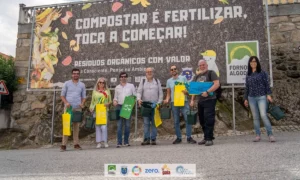Burning news: Waste-to-Energy is not sustainable as it harms the Circular Economy

The European Union has recently excluded Waste-to-Energy incineration (WtE) from the new EU Sustainable Finance Taxonomy Report which includes a list of economic activities considered sustainable; those that can make a substantial contribution to climate change mitigation and which do no significant harm to other environmental objectives such as transition to a Circular Economy, waste prevention and recycling. Thus, it determines which economic activities, investments and assets can and can’t be considered to be supportive of the Sustainable Development Goals (SDGs), as well as the EU climate goals in accordance to the Paris Agreement.
The proposed Taxonomy finally provides a unified definition of what is ‘green’ across green financial products, leading to more accountability and transparency.
Mariel Vilella, Director of Global Strategy at Zero Waste Europe
Therefore, the EU Taxonomy excludes activities which would ultimately undermine climate change mitigation objectives or significantly harm key environmental objectives [1]. In this sense, waste-to-energy has been excluded as it may harm one of the key environmental objectives, that is to ensure the transition to a circular economy, waste prevention and recycling.
To delve more into details, Zero Waste Europe has released a paper analysing the new Taxonomy. Indeed, despite the fact that waste-to-energy is often described as a good way to extract energy from resources, several evidences prove that it works against the Circular Economy, producing toxic waste, air pollution and contributing to climate change – all while creating for countries a risk of getting locked into long-term contracts with over-dimensioned waste burning facilities, as it has happened in Western Europe (read the ZWE 9 reasons why better to move away from waste to energy and embrace zero waste instead and dig into details in our related blog).
The EU Taxonomy is a key part of the EU Commission Legislative Proposals on Sustainable Finance, and will become the basis for the development of new regulatory frameworks for the financial sector. Therefore, the exclusion of waste to energy from the report is a crucial step to move towards a real Circular Economy as it allows focus to be placed on financing real waste management solutions such as systems focused on prevention, re-use, separate collection and recycling.


